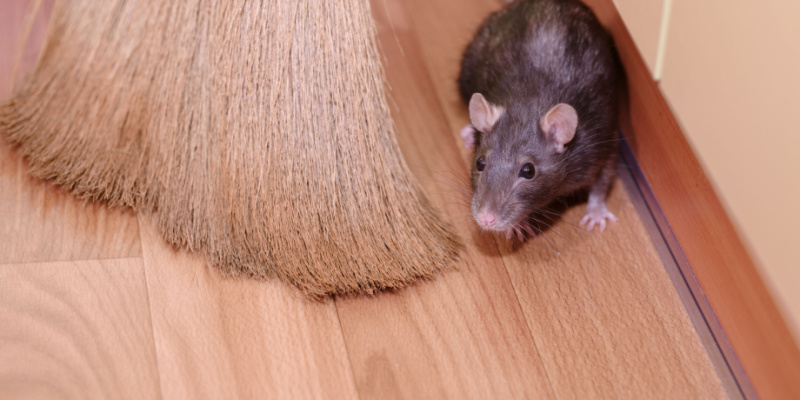Dealing with a rodent problem in your home can be a daunting task. Rodents, such as mice and rats, are not just a nuisance but also pose health risks and can cause significant damage to your property. The question many homeowners face is whether they can effectively tackle a rodent problem on their own.
DIY Rodent Control: Initial Steps
1. Identifying the Problem
The first step in DIY rodent control is to identify signs of infestation, like droppings, gnaw marks, or unusual noises.
2. Sanitation
Good hygiene is crucial. Rodents are attracted to food and waste. Ensure your home is clean, store food in sealed containers, and manage garbage effectively.
3. Sealing Entry Points
Rodents can enter through small openings. Inspect your home for gaps or holes and seal them with materials like steel wool, caulk, or metal sheeting.
4. Setting Traps
Various traps are available, such as snap traps, glue traps, and live catch traps. These should be strategically placed in areas where rodent activity is noticed.
The Limitations of DIY Rodent Control
While DIY methods can provide temporary relief, they often fall short of completely eradicating a rodent problem. Here’s why:
- Missed Entry Points
Homeowners might miss less obvious entry points, which professionals are trained to identify.
- Reproduction Rate
Rodents reproduce rapidly. If not all are caught, the problem can quickly escalate.
- Health Risks
Handling rodents and their droppings can be hazardous to your health. Professional pest control services are equipped to handle these risks safely.
- Incomplete Solutions
DIY solutions often fail to address the root cause of the problem, offering only a temporary fix.
Professional Pest Control: A Comprehensive Approach
Professional pest control services can offer more effective solutions to rodent problems. They bring expertise and resources that most homeowners don’t have access to. Here’s what they offer:
1. Thorough Inspection
Professionals can identify the extent of the infestation and the specific type of rodent, which is crucial for effective treatment.
2. Customized Treatment Plans
Based on the inspection, professionals will create a tailored plan, using more advanced traps and baiting techniques.
3. Long-Term Strategies
Beyond immediate removal, professionals can provide long-term prevention strategies, including sealing entry points and advising on habitat modification.
4. Safety and Health
Professionals are trained in safe handling and removal techniques, minimizing health risks.
When to Call a Professional
Consider seeking professional help if:
- The infestation persists despite using DIY methods.
- You’re dealing with a large or aggressive rodent population.
- There are concerns about health risks or property damage.
- You’re unsure about the extent of the problem.
Preventive Measures for Future Infestations
Prevention is key in rodent control. Regularly inspect your home for signs of rodents, maintain cleanliness, and keep an eye on potential entry points. Prevention strategies not only save you the stress of dealing with an infestation but also protect your health and property.
While it’s possible to address minor rodent problems on your own, the effectiveness of DIY methods is often limited. For persistent or severe infestations, professional pest control services are recommended. They offer a comprehensive approach that not only addresses the current problem but also helps prevent future infestations. Remember, the key to successful rodent control is a combination of immediate action, ongoing prevention, and professional intervention when necessary.
